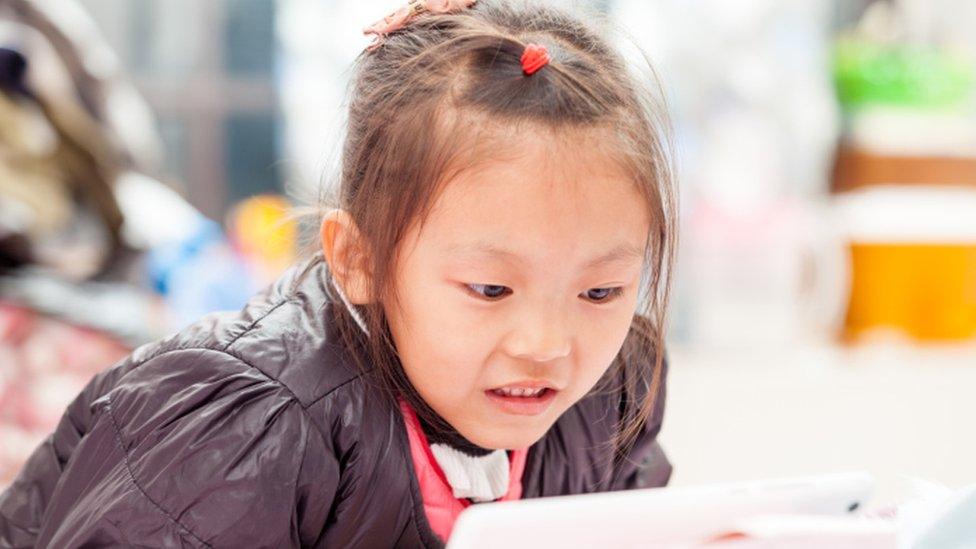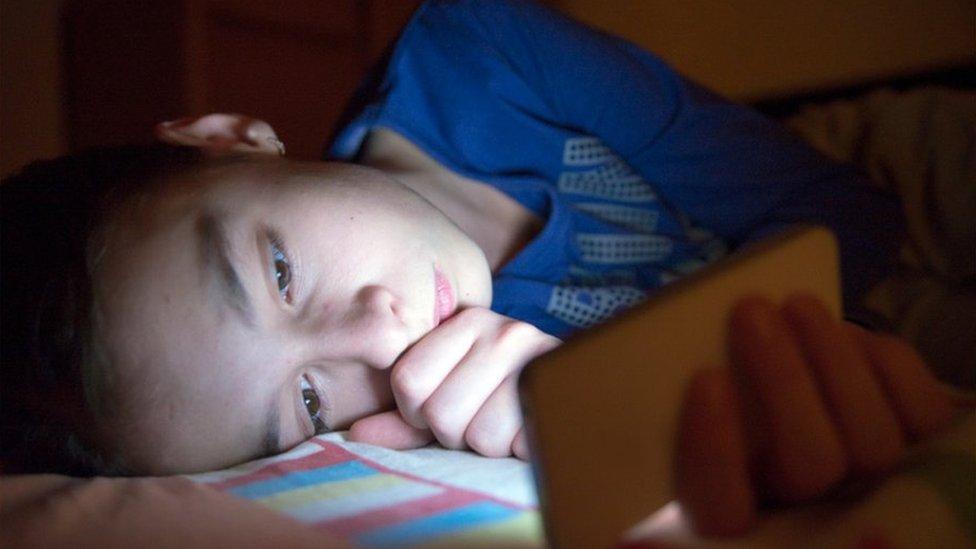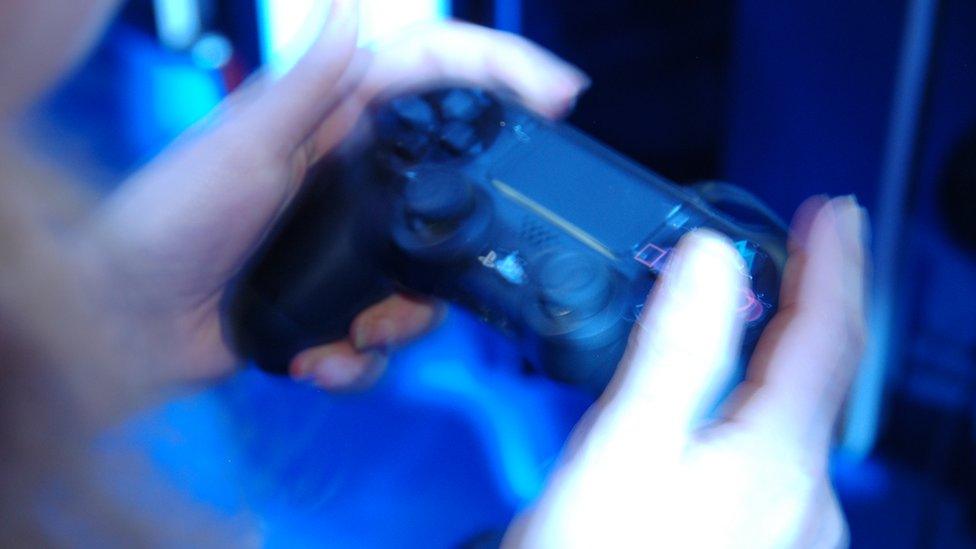Parents 'struggle to get children off devices'
- Published

The charity has published tips to help families reduce the amount of time spent on screens
Many UK parents find it easier to get their children to do homework, go to bed or have a bath than turn off their phones, laptops and TVs, a poll finds.
A survey for the charity Action for Children found almost one in four mothers and fathers (23.1%) struggle to control their children's screen use.
But just 10% found it hard to get them to do their homework, while 17.5% struggled to get them off to bed.
Just under 5% found it difficult to get their offspring to have a bath.
Action for Children's Sir Tony Hawkhead: "Quality time needs to be an interaction which is not about sitting in front of a screen"
Tips for families
The charity has published a series of tips to help families reduce the amount of time children spend watching television and using screens.
The suggestions include:
planning family activities that do not include technology
creating a weekly schedule based on the idea of one hour of technology use equalling one hour on other activities
recreating favourite childhood games
parents turning off their devices at the same time as children have screen-free time.

The charity is promoting quality family time
Carol Iddon, managing director of operations at Action for Children, said: "Technology is an often necessary part of the lives of children and parents alike, but it's important to maintain a balance with other activities and quality family time.
"We know from our extensive work with families that strong relationships with parents build resilience in children, making them less susceptible to bullying or abuse outside the home, and encouraging them to speak to their parents about any fears or concerns.
"As well as the conscious effort to cut down on screen time, some parents benefit from additional support, such as dropping in for a chat or attending support groups at children's centres, to learn how to better connect with their children."

High screen use is associated with lower GCSE grades, research suggests
The survey findings come amid continuing concerns that many young people may be spending too much time online or watching TV.
A Cambridge University study published in September suggested an extra hour a day of television, internet or computer game time in Year 10 was linked to poorer grades at GCSE.
The researchers recorded the activities of more than 800 14-year-olds. When they analysed their GCSE results at 16, they found those who had spent an extra hour a day on screens saw a fall in results equivalent to two grades overall.
Other experts have warned that pupils may arrive at school tired after spending time in front of a screen late at night.
- Published4 September 2015
